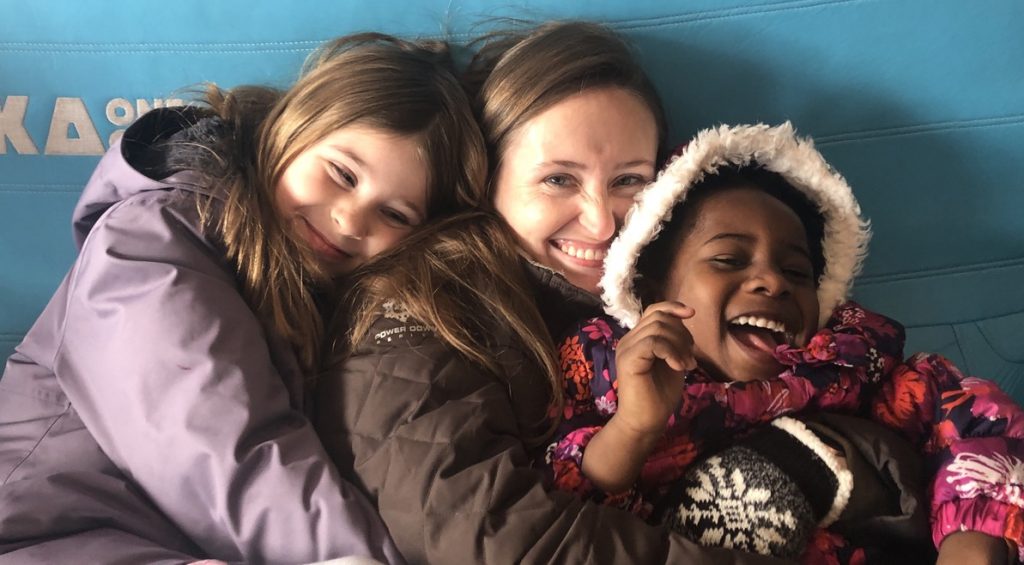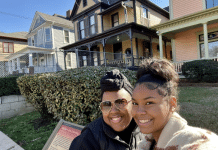
“I don’t like dark skin.” These are the exact words said about my 3-year-old black daughter by another child. This is a very personal matter for all parties involved. I am not going to get into details about why, who, and where because this isn’t a game of Clue. What I am going to do is tell you what happened AFTER my 3-year-old daughter heard, “ I don’t like dark skin.”
Side note, please hear me when I say I am not here to lecture other white parents. I simply want to show you what happens when white children are only surrounded by white children.
Affirmations
I have spent the last three years lifting my child up by affirming her beauty and strength through friends, relationships, books, and role models. I pushed hard on this because I knew one day she would recognize the racist world she has been born into. I also wanted to build a solid base for her to fall back on when her beauty and strength were questioned.
My Whiteness
I am white. I do have white privilege. I recognize that my skin color is a huge weakness when raising a black daughter. Some of the best advice I have been given is to let my daughter lead me through what she needs, especially when we are in a situation just like this one where how she feels and responds is most important.
Day 1
My daughter acted like she didn’t hear “I don’t like dark skin” and just kept going about her business, so I let her. My thought was if she didn’t hear what was said why in the world would I put that on her.
The moment we got in the car, I looked at her as I have so many times before and said: “You are so beautiful.” The tears, feelings, emotions, sadness, anger, and disbelief immediately broke free as I watched her face break into a million pieces. She had heard what was said. And not only did she hear it, she understood exactly what it meant.
Day 3
For three solid days, my daughter told everyone she saw that someone said: “I don’t like dark skin.” It was the first thing out of her mouth that first day when my husband got home. It was also the first thing out of her mouth two days later when we called one set of grandparents and again on the 3rd day when we called the other set. She was testing to see how those closest to her responded.
Week 1
Everywhere we went, she would verbally call out, “she’s black like me.” Again, she was looking for confirmation of her beauty. So many strangers were so kind to her. They would smile and say hello. They were just what she needed. For three years I had been guiding her into black culture, as best as a white woman can anyway, and suddenly she was craving it. Our incredible black friends rose up and circled around her.
I scheduled a fun play date with a kiddo at her school, and excitedly told her we are on her way. Her response, “Are they black?”. Me “Not this time, sweetie.” She immediately broke down in tears.
Month 1
Adding to her racial mirrors has become more crucial. By the way, I still can’t believe I am writing that about a 3-year-old. There is a dance studio 45 minutes away from our house, led by an amazing black male dancer. She had been asking for ballet lessons, so I signed her up because suddenly that 1 hour and 30 minutes drive through rush hour with three children didn’t matter. My daughter wanted to take ballet and needed more racial mirrors, so that’s what we did.
Month 3
The “stay-at-home” order has given us a welcome break from the outside world. My daughter is continuing to build herself back up. There are “I don’t like dark skin” changes in her that we are working on:
- She has a fit when I leave her hair free because it is “weird.”
- She doesn’t like to play with her black Barbies anymore.
- She looks in the mirror a lot more often, studying herself.
Sometimes when I see her looking in the mirror, I will stop and point out her features. I talk about her amazing hair, beautiful brown eyes, adorable nose, and bright beaming smile. It is in her nature to be a “ham,” but every time I try to do this, she makes a joke out of it. Just this evening, when I was following this ritual, she gave me a wry smile and stuck her fingers in her ears, blocking me out.
At 3-years-old, my daughter is already fighting for her sense of self. This is all because another child said: “I don’t like dark skin.”








